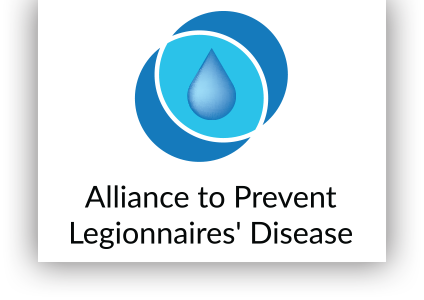Tackling the 96%: Virtual conference to focus on sporadic cases of Legionnaires’ Disease


The Alliance to Prevent Legionnaires’ Diseases is hosting a national virtual conference to challenge legislators, legislative staff members, health advocacy officials, water management experts and health reporters to “Tackle the 96 Percent.”
“Too often the focus is on outbreaks rather than on the vast majority of Legionnaires’ cases which are sporadic individual cases,” said Marcy Savage, APLD’s Director of Policy and Government Relations. “This conference is an opportunity to have a frank discussion with national experts about factors and root causes that likely impact the 96 percent of Legionnaires’ cases that are not a direct result of outbreaks.”
While outbreaks tend to make national headlines, the truth is about 96% of Legionnaires’ cases are individual and not associated with an outbreak of two or more cases from a common location and timeframe. Unfortunately, individual cases do not receive the investigations, media coverage, or policy response that outbreaks do, despite accounting for virtually all cases each year. The only meaningful way to reduce cases of Legionnaires’ disease is to better understand what drives sporadic Legionnaires’ disease and address by prioritizing root cause water management awareness, practices, and policies.
The free, virtual conference is scheduled for Oct. 19, 2021, from 1 p.m.-4:30 p.m. EDT. Participants can expect to gain a greater appreciation and understanding of sporadic Legionnaires’ disease, the current gaps in research and response to sporadic Legionnaires’ disease, and root-cause prevention approaches that seek to address these individual cases as well as outbreaks.
The virtual conference is aimed at health advocacy organizations, government policymakers and regulators, water utility managers, building owners and managers, insurance and risk managers, legislators, health reporters, and anyone interested in learning more about the challenges in stopping the spread of Legionnaires’ disease.
“We are encouraging not only traditional stakeholders such as water utility managers and health advocacy officials to participate in this conference but legislators, their staff and the people who report on health-related issues in the media,” Savage said. “We need an all-hands-on deck approach to tackling the 96 percent.”
The Alliance to Prevent Legionnaires’ Disease is a national nonprofit organization that advocates for better public understanding about and comprehensive handling of risk factors around the waterborne Legionnaires’ disease. For more information about the conference and to register to attend, visit the Alliance’s website: https://register.gotowebinar.com/register/4636336387223000588.
